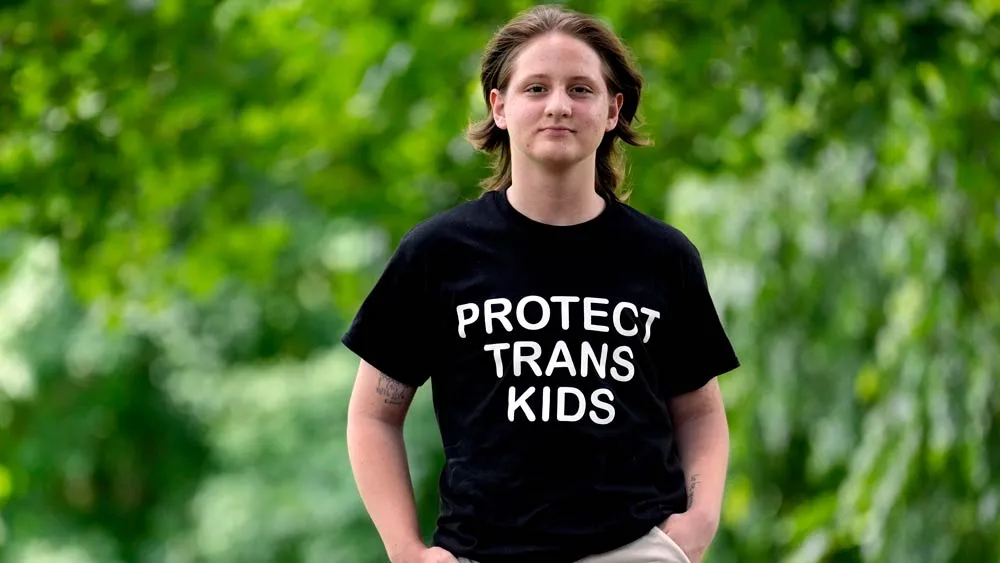February 24, 2021
'It's a Sin' Contributes to Record-Breaking HIV Testing in UK
Kevin Schattenkirk READ TIME: 3 MIN.
The new hit series "It's A Sin" has sparked a record-breaking rise in HIV testing in the U.K., according to inews.co.uk.
The critically acclaimed show aired in the U.K. on January 22, with a record-breaking 6.5 million views. Premiering just before the start of HIV Testing Week appears to have compelled an influx in testing. In 2019, a record 8,068 people were tested; this year, that number was beaten in just one day. Public Health England ordered an additional 10,000 tests for Testing Week because of the demand for testing.
With HIV returning to public discourse, iNews also reports that online searching has focused on questions that point back to stigmas and misinformation that have continued to surround HIV – such as whether one can contract HIV/AIDS through kissing or saliva. In the week following the premiere of "It's A Sin," online searches for "why was AIDS so deadly in the 80s" increased by 3100 percent. With a 2150 percent increase, the second most searched term is "can women get AIDS."
HIV/AIDS activist Jo Josh commented on her experience with confronting stigmatization and educating people on the disease.
"When I was out one of my daily walks, I overhead a woman my age speaking to a child about 'It's A Sin,'" Josh said. "I was trying to overtake them, but instead, I decided to stop and ask them both about it. I soon learned that this was her goddaughter. When I shared that I am HIV positive, I could tell the atmosphere had changed. Seconds later, the woman had made her excuses, and they were both sprinting down the path."
Josh points out that because of stereotypes and stigmas, many people still have fixed ideas, rooted in bias, of who contracts HIV and how. Josh said, "I'm a white blonde woman, and people have certain ideas about who gets HIV and how you catch it. They'd rather believe that I got HIV through a blood transfusion, rather than me being one of the 97 percent of people who contracted it through sex."
While the impact of HIV/AIDS on women isn't broached in "It's A Sin," the show – through its inclusion of characters Roscoe and Ash – illustrates the risk of HIV among Black and Asian communities. According to Public Health England, 44 percent of new HIV diagnoses are among heterosexual Black men and women, a demographic that comprises less than 2 percent of the British population.
Health officials are hopeful that the show will compel people to get tested, especially those who might be living with but unaware of their HIV status. Dr. Diarmuid Nugent, a consultant at London's 56 Dean Street, said that while it is important to "[reflect] on the AIDS epidemic and honoring those who suffered and who fought against stigma and injustice, that we also capitalize on the show's platform to educate on how much HIV has changed.
"HIV in the U.K. is almost always transmitted from people who do not know that they have it – if they test regularly, diagnosing the infections means they can take steps to avoid onward transmission, and we can start treatment which will rapidly reduce their level of virus so that it can no longer be transmitted to others."
Actor Nathaniel Hall, who plays Donald on the show, has been outspoken about his having been diagnosed HIV positive at age 17, after his first sexual experience. Hall believes that educating people on the misinformation surround HIV/AIDS is still a necessity, no matter how much progress has been made since the 1980s.
Another potential impact of the show, The Terrence Higgins Trust – named for one of the first AIDS casualties in the U.K. and launched by his partner Rupert Whitaker and friends – has seen an increase in donations. Philip Normal, a fashion designer and mayor of Lambeth, designed a T-shirt as a fundraiser for the organization. The shirt is emblazoned with "La.," a catchphrase of the main characters on "It's a Sin." In the brief time since the show's premiere, Normal has sold 9,000 shirts, raising over £150,000 for the Trust – equivalent to approximately $212,170.
Kevin Schattenkirk is an ethnomusicologist and pop music aficionado.


